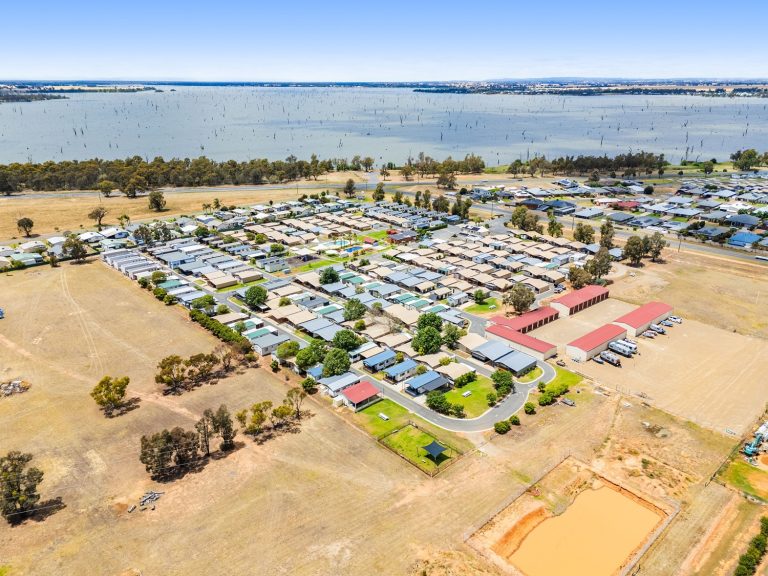How to become a Commercial Real Estate Agent

Selling homes is the first thing that comes to mind when most people think of becoming a real estate agent, but there are many reasons to consider getting into the world of commercial property.
Whether you’re new to the industry or are an experienced agent looking to make the move out of the residential realm, here’s how you can begin diving into the commercial real estate game.
How do I become a commercial real estate agent?
The first step to getting into commercial real estate is to work towards becoming a licensed real estate agent.
Different states and territories have different criteria when it comes to getting your licence.
Here’s what you’ll need to do to become licensed in each state:
Victoria
To become a real estate agent in Victoria, you must first train to be an agent’s representative with a Registered Training Organisation (RTO).
Once you have worked full-time as an agent’s representative for a licensed real estate company for at least one year over a period of three years and you have completed a Certificate IV in Property Services (or an equivalent course), you can apply for your estate agent’s licence through Consumer Affairs Victoria.
NSW
First, you’ll need to study for a Certificate of Registration with a RTO. Once you have your certificate, you can work in the property industry under the supervision of an agency licensee.
To become an agent you then need to train for an agent licence – a class one licence will allow you to run your own business, while a class two licence will allow you to work as an employee.
You will need to complete a relevant training course, such as a Certificate IV in Real Estate Practice or Certificate IV in Property Services and work for 12 months before qualifying for a licence.

Becoming a commercial real estate agent requires training and qualifications in most states.
Queensland
To become an agent in Queensland, you’ll need to undergo training with an RTO.
The Property Services Training Package covers the skills you’ll need and once you have completed that course, you will be able to qualify for a licence.
You can apply for a real estate agents licence through the Queensland Government website.
South Australia
To qualify for a real estate licence in South Australia, you need to undergo training with an RTO, as with states.
Several courses, including the Diploma of Property Services (Agency Management), cover the training that’s required.
To become a licensed real estate agent – also known as a ‘land agent’ in SA – you can apply for a licence online once you have completed all the necessary modules.
Western Australia
To get licenced as a real estate agent in WA, you must complete the Diploma of Property Services (Agency Management) and work for at least two years in a full time continuous role in the real estate industry.
You can apply through the Department of Mines, Industry Regulation and Safety.
Northern Territory
To qualify as a real estate agent, you must undergo training by taking the Diploma of Property (Agency Management) with a RTO. Once you’ve qualified and want to apply for a real estate licence in NT, you first have to advertise that you intend to apply in the local news. Members of the public will have two weeks from the date of the notice to object against your application.

Commercial property deals are usually more complex than residential.
ACT
The first step to becoming a real estate agent in the ACT is to get your Registration Certificate. Once you have completed it and received your Statement of Attainment, you can then apply to Access Canberra to register to work in the property industry.
There is also Conditional Registration in the ACT – this type of registration is only valid for 12 months while the person is employed by the same agent and is enrolled in a course.
Tasmania
The first step is to obtain a Diploma of Property awarded by a RTO or an equivalent qualification.
If you have had two years full-time experience as a property manager or property representative over the past five years, you can then apply to the Property Agent’s Board for a real estate agent licence.
Do I need a special licence to operate as a commercial real estate agent?
While the world of commercial real estate is very different to buying and selling residential homes, you don’t need a separate licence to get into commercial real estate.
Once you are a licenced real estate agent, you can work in both residential and non-residential markets.
Can a residential real estate agent manage a commercial listing?
Any licenced real estate agent can manage a commercial listing, even if they run a real estate firm that normally deals strictly with residential properties.
However, this rarely happens as managing a commercial listing requires specific knowledge and expertise.

Commercial property sales can be managed by residential agents.
What differences are there between commercial and residential listings?
Working with commercial properties is a completely different ball game.
Importantly for agents, as commercial properties are typically listed at higher price tags than residential homes, they often come with larger commissions.
Also, aspects of selling and leasing a commercial building are more complicated than with a residential property, as they are often larger properties and have more complex
I’ve been working in residential real estate for some time – is it possible to make the change to commercial?
George Evangelidis, a long time trainer/assessor for The Australian College of Professionals’ real estate courses and director of Macquarie Property Partners, says that established residential agents can easily upskill and move into commercial real estate.
“Most people get involved in residential and they often stick to that. They find it too difficult to get involved in non-residential and they don’t realise the opportunity is there within the same category of licence they already have,” he says.
“There are skills courses that are specially designed for people who have built up their residential portfolio and want to go into non-residential and expand into industrial, retail or offices.”
What are the benefits of switching from residential to commercial real estate?
There are plenty of pros when it comes to swapping selling homes for offices, warehouses and retail units, according to Evangelidis.
“A lot of people like the fact that it’s mainly 9am to 5pm – there isn’t a lot of weekend work,” he says.
“You’re generally dealing with people who don’t have to have their hand held through the sale – they’ve usually been around the block a few times. They’ve probably bought and sold a few times in the commercial field already.
“Also, a tenant who is renting a retail space or office is normally going to have clients visiting them, so they’ll look after the space. The damage after tenancy isn’t normally as bad as with residential properties.”







